VIPsight - 2nd Edition 2020
COMPANIES
Uniper SE: Fortum reached its Goal. What´s next?
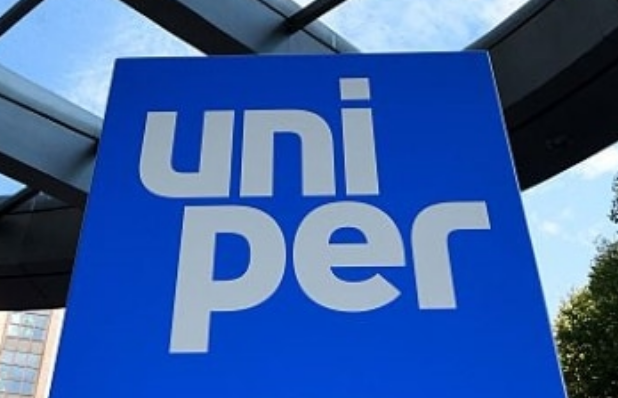 Although the homepage still carries the opening statement “Wellcome to the new Uniper!”, the resignation of all five independent Supervisory Board Members on April 3rd indicates that the days of “new Uniper” are over. The move is a reflection of recent changes in the ownership structure, with Fortum increasing its shareholding to close to 70 percent of all shares outstanding.
Although the homepage still carries the opening statement “Wellcome to the new Uniper!”, the resignation of all five independent Supervisory Board Members on April 3rd indicates that the days of “new Uniper” are over. The move is a reflection of recent changes in the ownership structure, with Fortum increasing its shareholding to close to 70 percent of all shares outstanding.
In the early days of Uniper, some investors even regarded the company as a bad bank for the unattractive conventional energy assets of E.ON. Following the successful spin-off, E.ON later decided to sell its remaining shares in Uniper to Fortum, which since increased its holding to a majority position. However, Fortum´s approach was met with resistance by the former management of Uniper, which believed in an independent strategy of the group. As of today, it can be concluded that this strategy delivered good results, developing Uniper into one of the most successful European energy companies with an impressive return for investors.
But this chapter is closed by now. Hence, investors are looking forward to learning from the new management about the amended strategy and its medium-term implications, such as a potential bid for the outstanding shares in Uniper. A good opportunity to ask these questions should be this year´s AGM.
Grammer AG: The last Waves of a takeover attempt reach Amberg
 These have been tough times in Amberg. It all started with the controversial takeover battle between the Hastor family and the Chinese investor Ningbo Jifeng. No sooner had the undesirable investor clan Hastor been fended off and the Chinese partner on board when the management team said goodbye with a golden parachute within a few months.
These have been tough times in Amberg. It all started with the controversial takeover battle between the Hastor family and the Chinese investor Ningbo Jifeng. No sooner had the undesirable investor clan Hastor been fended off and the Chinese partner on board when the management team said goodbye with a golden parachute within a few months.
According to a press statement by the public prosecutor´s office in Frankfurt am Main, authorities are investigating six suspects on suspicion of violating the German Securities Trading Act. One of these people is suspected of having previously passed on inside information as a so-called “tipster”. Also, the investigating public prosecutor´s office is also conducting the fine proceedings against three former board members of a company and the company itself because of the allegation of two late ad hoc notifications. As part of the investigations, a total of 16 properties were searched in the Rhine-Main area and Bavaria, as well as in Berlin.
Grammer confirmed that these measures included two Bavarian locations of the company. However, as far as the company is aware there are no suspicions against current or former members of the Executive Board or current or former members of the Supervisory Board, and there are no suspicions against current or former senior employees of Grammer. The criminal investigation is aimed at five people who are not and have not been employees of Grammer, and there is no other connection to the company from Grammer´s point of view. The sixth person, however, is a Grammer employee in a lower management position. This person had no access to any inside knowledge, though. The company also informed that a case has been pending with BaFin since 2017 due to the allegation of two allegedly late published ad hoc releases in the first half of 2017. Grammer had the allegations rejected by its legal advisors. The last correspondence with BaFin was dated April 17, 2018, almost 22 months ago.
It is always good to see that the public prosecutor´s office takes its duties seriously. Although, a bit more pace and focus would not be harmful.
Deutsche Lufthansa AG: First restructuring Package decided, what´s next on the Agenda?
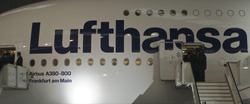 Although the COVID-19 crisis has been going on for a while, strategic decisions for the time after that are seldom heard yet. This is probably because so many companies are still busy communicating postponements of AGMS, profit warnings, and dividend cancellations.
Although the COVID-19 crisis has been going on for a while, strategic decisions for the time after that are seldom heard yet. This is probably because so many companies are still busy communicating postponements of AGMS, profit warnings, and dividend cancellations.
No wonder that only a few companies think about tomorrow in this situation. A positive example is Lufthansa. The airline industry had a particularly heavy blow from this crisis, and it is still open if any airline can survive in 2020 without government help.
But Lufthansa is already one step further with the recent decision on a first restructuring package. The company expects a significant decline in air travel for the period after the crisis, while a return to pre-crisis levels is not expected in the foreseeable future. Based on this assumption, Lufthansa decided to reduce the capacity of flight operations and administration long term. Parts of the fleet will be permanently decommissioned, while other planes will be withdrawn from short-haul operations. Further reductions apply to Lufthansa Cityline and Eurowings, while the already initiated restructuring plans at Austrian Airlines and Brussels Airlines will be further intensified, including steps to reduce the fleets, while SWISS International Airlines is expected to take similar initiatives.
The flight operations of Germanwings will be discontinued to speed up the already planned bundling of all flights of the Eurowing Group in one unit. Also, the Lufthansa Group airlines have already terminated almost all wet-lease agreements with other airlines. There was also a clear message for the employees: The aim is to offer as many people as possible continued employment within the Lufthansa Group. In this respect, talks with unions and workers` councils are to be arranged quickly.
At first glance, Lufthansa´s decision on a first restructuring package as part of the preparations for the time following the crisis comes as a positive surprise. But then again, there are these ongoing rumors of a government bailout. With state money in the accounts, if definitively would become much harder to restructure the business for later times. Could it be that the package may not be aimed at the time after the crisis, but rather serves to prepare for a more substantial step?
Leoni AG: Ability to Restructure and full Funding confirmed, Pre COVID-19
Occasionally, bad things happen just in time to avert a greater evil. A prime example would be Leonie. In December 2019, the company identified substantial liquidity requirements to keep the ship afloat. Since, the refinancing of the business was substantially improved, resulting in a positive expert opinion according to IDW S 6 standard, confirming the ability to restructure and that Leoni is fully financed.
It took substantial efforts to ensure this outcome. As a consequence, the company received an increase in its available liquidity by at least EUR 200m. Steps taken included the expansion of an existing factoring program, sale and leaseback transactions of assets in Germany and China and the restructuring of various bilateral credit lines into a new syndicated credit line. No dividend shall be paid until the credit line is repaid in full.
At first glance, this looks like a great deal, concluded just at the right time. Only a few days later the COVID-19 crisis shocked the markets, and the outcome of the negotiations with the banks could have had a different outcome. Leoni - like most other companies - is expecting considerable burdens on sales, earnings, and liquidity and had to take countermeasures to limit the impact. In a recent statement, the company also announced the intention to take up the offer of the German Government and apply for financial aid. Also, Leoni confirmed that “it is in close contact with its customers and suppliers in order to overcome this extraordinary situation.” Banks were not mentioned at all.
Wirecard AG: It is not that easy to erase a Question Mark

So far, it is open whether and which of the newspaper´s accusations apply. However, a substantial part has been refuted so far. As far as allegations remain, the audit company KPMG recently informed Wirecard about an increased time required to complete the special audit, though. It is good to hear that most parts of the audit have not produced any substantial findings in these areas of investigation that would result in a need for correction of the financial statements for 2016, 2017 and 2018 investigation periods. Based on this information, it seems to be a solid interpretation that the business activities in India and Singapore, as well as the Merchant Cash Advance (MCA) / Digital Lending division, are clean, although it would be interesting to learn a bit more about the meaning of “substantial” in this respect. The ongoing audit of the third-party partner business will require a bit more time and is expected to be completed by April 22nd, 2020, by the latest. And here it comes again: “The extensive inspection of relevant documents, including those of external companies, and corona virus-related travel restrictions make the extended timeframe necessary.”
In this context, the postponement of the annual press conference and publication of the financial statements 2019 by three weeks to April 30th, 2020 is understandable. Shareholders of Wirecard look forward to a special weekend edition of the Financial Times at the beginning of May!
Heidelberger Druckmaschinen AG: Transfer of Funds from the Pension Fund helps to finance the Future
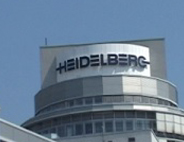 Heidelberger Druckmaschinen (Heideldruck) found a creative way to finance its extensive restructuring program. The company adopted an action package for a short-term reduction in structural costs and long-term improvements in the company´s profitability. The plan is to focus on the profitable core business, to discontinue the production of loss-making products and to make long-term adjustments to production and structural costs that could lead up to 2,000 job cuts and possibly site closures. At the same time, Heideldruck will significantly improve its liquidity position by transferring a portion of the liquidity reserve of approximately EUR 355 million from the trust fund managed by Heidelberg Pension-Trust e.v. back to the company. This step is supposed to reduce the company´s fiduciary assets to the level required to secure all pension entitlements that are not covered by statutory insolvency insurance. The transfer is not expected to have a negative impact whatsoever on existing or future pension entitlements.
Heidelberger Druckmaschinen (Heideldruck) found a creative way to finance its extensive restructuring program. The company adopted an action package for a short-term reduction in structural costs and long-term improvements in the company´s profitability. The plan is to focus on the profitable core business, to discontinue the production of loss-making products and to make long-term adjustments to production and structural costs that could lead up to 2,000 job cuts and possibly site closures. At the same time, Heideldruck will significantly improve its liquidity position by transferring a portion of the liquidity reserve of approximately EUR 355 million from the trust fund managed by Heidelberg Pension-Trust e.v. back to the company. This step is supposed to reduce the company´s fiduciary assets to the level required to secure all pension entitlements that are not covered by statutory insolvency insurance. The transfer is not expected to have a negative impact whatsoever on existing or future pension entitlements.
Heidelberg plans to use the additional liquidity to eliminate nearly all of its net debt. In particular, the plan is to pay off a high-yield EUR 150 million bond early and to substantially improve the company´s financing structure. The company estimates that – depending on the outcome of negotiations with the employee representatives as well as accounting charges in the financial year 2019/20 – the non-recurring expenses required to implement the action package will total about EUR 300 million.
Wow, this news probably creates a lot of work with the IR of companies with comparable trust fund structures.
Infineon Technologies AG: Progress with the Acquisition of Cypress Semiconductor Corporation
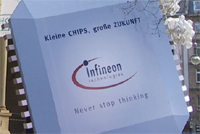 Time passes quickly. Infineon´s plans to acquire Cypress Semiconductor Corporation were published in early June 2019. The transaction, which was valued at EUR 9 billion at the time, should help to strengthen the focus on structural growth drivers and serve a broader range of applications. But most of all, it was supposed to accelerate Infineon´s “path of profitable growth”. The closing of the transaction was expected by the end of 2019, or early 2020. But while the ad hoc announcement underpinned the importance of speed in this way, even nine months later the transaction still has not been concluded. The obstacle still is missing approvals by the relevant regulatory bodies.
Time passes quickly. Infineon´s plans to acquire Cypress Semiconductor Corporation were published in early June 2019. The transaction, which was valued at EUR 9 billion at the time, should help to strengthen the focus on structural growth drivers and serve a broader range of applications. But most of all, it was supposed to accelerate Infineon´s “path of profitable growth”. The closing of the transaction was expected by the end of 2019, or early 2020. But while the ad hoc announcement underpinned the importance of speed in this way, even nine months later the transaction still has not been concluded. The obstacle still is missing approvals by the relevant regulatory bodies.
In this regard, the recently granted approval by the Committee on Foreign Investment in the United States was a major step forward and appreciated by investors. According to Bloomberg, Cypress stated that “CFIUS has completed its review of Cypress´s previously announced merger transaction with Infineon Technologies AG and determined that there are no unresolved national security concerns”. However, the combination still needs a sign-off from China´s State Administration for Market Regulation, according to Bloomberg. Many analysts seem to think that this is an easy hurdle. However, here it comes again: While in the days pre-COVID 19 the trade war between the US and China seemed to fade away, new massive disputes are emerging due to the Chinese handling of the disease.
Buhlmann's Corner
Shut down – followed by SHUT UP!
 Corona - the aureole of our planet - is the second great event of the century after 9-11. The global political reaction ends in the de-globalization demanded for decades by ATTAC (https://en.wikipedia.org/wiki/Association_for_the_Taxation_of_ Financial_Transactions_and_for_Citizens%27_Action) - today already, the common citizen of Hamburg has to identify himself at the city limits with his identity card to the police. The journey from Paris to Vienna requires at least two entry visas. How beautiful that was in days gone by! The ESTA worked digitally and was valid for an incredible 720 days. Everybody is (again?) himself the next one and under exactly 150 cm nobody wants to anybody near him. What Fridays for Future did not manage: the bottom under the water in Venice is visible again. A small protein ball, invisible without equipment, in coalition with randomly selected virologists and (democratically determined) politicians dependent on them, appear daily to protect a health system (which is said to have 10,000 intensive care beds available in Germany even now).
Corona - the aureole of our planet - is the second great event of the century after 9-11. The global political reaction ends in the de-globalization demanded for decades by ATTAC (https://en.wikipedia.org/wiki/Association_for_the_Taxation_of_ Financial_Transactions_and_for_Citizens%27_Action) - today already, the common citizen of Hamburg has to identify himself at the city limits with his identity card to the police. The journey from Paris to Vienna requires at least two entry visas. How beautiful that was in days gone by! The ESTA worked digitally and was valid for an incredible 720 days. Everybody is (again?) himself the next one and under exactly 150 cm nobody wants to anybody near him. What Fridays for Future did not manage: the bottom under the water in Venice is visible again. A small protein ball, invisible without equipment, in coalition with randomly selected virologists and (democratically determined) politicians dependent on them, appear daily to protect a health system (which is said to have 10,000 intensive care beds available in Germany even now).
With sovereign power the voting cattle let themselves be locked up and turn the key on their own. Nobody is allowed to use Lufthansa, which in turn loses 280 € every second, 24 hours a day and 7 days a week. This is about the hourly rate of an average lawyer when he or she is incredulously reading article 14 of the German constitution. Overridden, waste paper. Some civil servant who yesterday hardly appeared at all is now dictating who can survive economically. German company law is being turned upside down; the achievements of 1965 were pushed through the parliamentary system in 7 calendar days. May the people who have informed themselves before voting stand up. The owners' right to ask questions has become the employees' right to reply. Throughout Europe, shareholders are invited, but the door to the meeting remains closed. Today, shareholder meetings also work virtually with decency and feedback. One just has to want it!
According to the Ifo Institute, Lufthansa, Volkswagen & Co are currently paying 42 billion euros a week - the money may not be gone, but it is elsewhere. The sum is roughly equivalent to the amount that Germany spends on the military each year. What public servants are destroying is being replaced by a corona of economics and finance ministers with "emergency funds". We should ask Michel de Nostredame, called Nostradamus (1503-1566), who is going to pay off these new debts ex cathedra and, above all, when. I will probably not live to see this. Huge sums of money, which make up about 3.5 times the total German budget, are distributed to one third of the German population. They would give every old, sick and vulnerable citizen a personal pocket money of 66 million, without weekly losses of 42 billion. They could hide from the virus on their own yacht (the prices ... well) in the Atlantic; Hapag Lloyd / Maersk would simply have to make more turns. Taiwan and Korea have made it, too - we, on the other hand, pray on the TV channel and let people die alone.
When everything is nationalised that could not jump away, Alexander Schalck-Golodkowsky will be spinning in his grave with anger because he had not thought that far ahead. The GDR system returns and affects all of Germany ... StaMoKap (State monopoly capitalism, the theory of Karl Marx and the practical experiments of Vladimir Ilyich Lenin).The monopolies are growing and they will win. The common taxpayer will no longer have to go through KYC procedures because he will get everything done in one app - including bowel movements. Anyone who still twitches and muzzles will hear SHUT UP!

Inscription: "The king called and all men came / with God for King and Fatherland, 17.3.1813" was thought in 1913 to commemorate the war against Napoleon, but it also showed a fundamental change in the relationship between king and people, which he addressed directly for the first time in Germany (https://en.wikipedia.org/wiki/An_Mein_Volk)
In the same way, I would like to invite you, who still remember your corporate governance, to London, Strasbourg or Florence for Pentecost - even if the news services would be invited as well - but I am fear it is too late for that now.
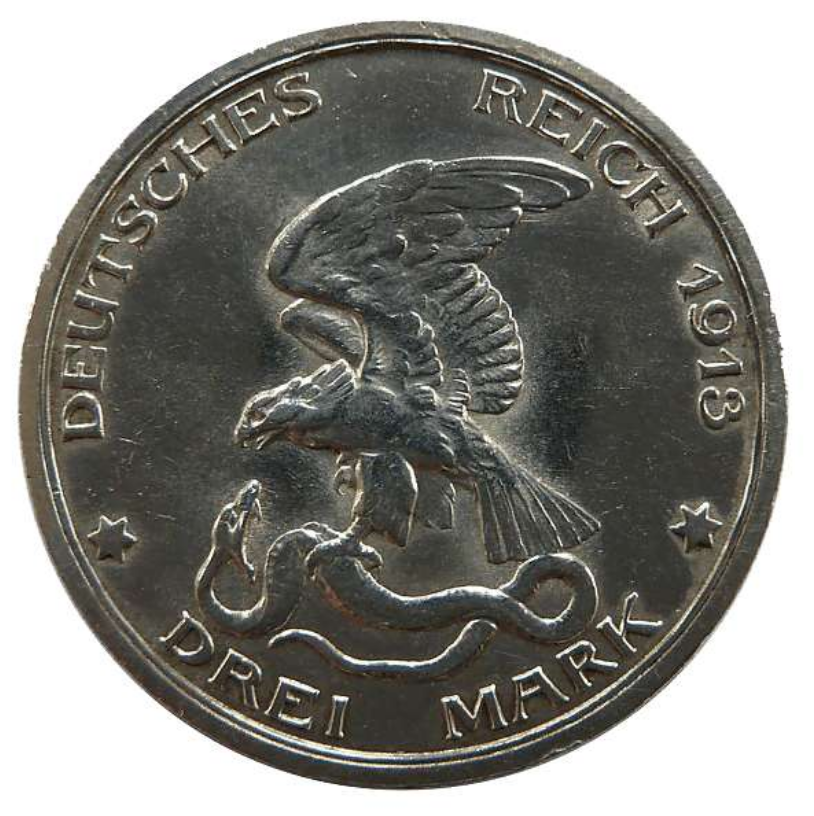
ACTIONS CORNER
GEA Group AG: Advance Payment of Dividend due to Postponement of AGM
 Many companies decided to cancel or postpone dividend payments amidst the COVID-19 crisis. Occasionally one gets the impression that this is probably just an excuse for measures to be taken anyhow amidst an already week liquidity position, or even worse, just an imitation of the corresponding announcements by other companies. In light of this, it is very much appreciated when a company takes on a pioneering role and takes the right measures.
Many companies decided to cancel or postpone dividend payments amidst the COVID-19 crisis. Occasionally one gets the impression that this is probably just an excuse for measures to be taken anyhow amidst an already week liquidity position, or even worse, just an imitation of the corresponding announcements by other companies. In light of this, it is very much appreciated when a company takes on a pioneering role and takes the right measures.
Similar to many other companies, GEA decided to postpone this year´s AGM, which was originally planned for April 30th, 2020. The argument for this move did not come as a surprise: “The health of the company´s shareholders, employees and the service providers involved takes the highest priority.” Instead of postponing the AGM, GEA could have opted to hold a virtual event. This decision was based on the expectation of an especially high number of questions at the AGM in conjunction with the COVID-19 crisis.
The company confirmed the dividend proposal of EUR 0.85 per share as published in its 2019 annual report. However, in light of the decision to postpone the AGM, the Executive Board and the Supervisory Board of GEA also decided to pay the maximum possible advance payment of EUR 0.42 per share. This advance payment is set for May 6, 2020, when payment of the full dividend was originally planned. The AGM is expected to be held at the end of 2020.
RIB Software SE: This sounds like a Deal!
For many investors, the uncertainty triggered by COVID-19 is a major problem. Not so much though for the shareholders of RIB Software, since at least the options are clear.
Sometime before the dimensions of the crisis became apparent, Schneider Electric announced its intention to launch a voluntary public tender offer to the shareholders of RIB. On March 20th, 2020, the German subsidiary Schneider Electric Investment AG published the offer document. The bidder wants to buy all RIB shares at the offer price of EUR 29 per share with the intention to settle the transaction until the end of June 2020.
If the offer is settled before RIB´s 2020 AGM, shareholders who accept the offer will not receive a dividend for the financial year 2019. The expected dividend payment is EUR 0.12 per share, while the AGM is scheduled for May 13th, 2020. The offer period began with the publication of the offer document on March 20th and ends on April 22nd, 2020. Following section 16 para 2. WpÜG, shareholders that have not accepted the offer within the acceptance period may still accept the offer within two additional weeks, provided that the minimum acceptance threshold of at least 50% plus one share has been reached. On April 3rd, Schneider announced in this regard that the acceptance rate as of this date was 30.02%.
Great, finally we see a transaction where everybody involved looks like a winner. Investors get paid at a pre-crisis valuation, RIB gets access to Schneider´s resources, and Schneider can pursue its strategic goals. And last but not least, the lawyers did their homework on the deadlines!
Volkswagen AG: VW does its Homework
 Experienced investors know the game: As soon as there is boredom at the equity markets, you can be sure that somebody brings up the idea of a squeeze-out of the non-controlling shareholders of AUDI. It, therefore, sounds almost like a fairy tale that VW has actually decided to take this step. And not only that, the same fate awaits MAN shareholders. But like in every good fairy tale, there is an evil spirit here too.
Experienced investors know the game: As soon as there is boredom at the equity markets, you can be sure that somebody brings up the idea of a squeeze-out of the non-controlling shareholders of AUDI. It, therefore, sounds almost like a fairy tale that VW has actually decided to take this step. And not only that, the same fate awaits MAN shareholders. But like in every good fairy tale, there is an evil spirit here too.
Both companies made the respective announcements on February 28th. In the case of MAN, the bidder is TRATON SE, the Group´s listed commercial vehicle producer. TRATON, which currently owns 94.36% of the outstanding MAN shares, informed MAN that it intends to simplify the overall Group´s structure. As part of this initiative, a merger with MAN SE is planned and TRATON wants to execute the procedure for transferring the shares held by the non-controlling shareholders of MAN to TRATON in consideration of payment of an appropriate cash settlement (squeeze-out).
AUDI is supposed to take the lead for research & development within the Volkswagen brand alliance. In the context of the related reorganization of competencies and responsibilities, Volkswagen also plans to carry out a squeeze-out to acquire the 0.36 percent of AUDI´s shares not yet controlled.
So far, this looks like a standard business. But here comes the evil spirit: What will be the implications of the COVID-19 crisis on the timing and procedure of the squeeze-out? Both target companies postponed already their AGMs, and both had a strong extraordinary impact on the operating business.
Sixt SE: Conditional Sale of its holding in Sixt Leasing SE
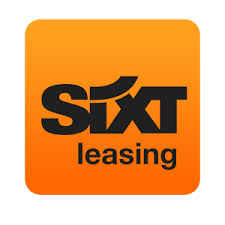 On February 19th, 2020, Sixt announced “with a view to respective media reports published today”, that it is in negotiations with Hyundai Capital Bank Europe GmbH (a joint venture between Santander Consumer Bank AG and Hyundai Capital Services Inc.) regarding the sale of its participation in Sixt Leasing SE at a proposed sales price of EUR 18 per share, plus dividend for the year 2019.
On February 19th, 2020, Sixt announced “with a view to respective media reports published today”, that it is in negotiations with Hyundai Capital Bank Europe GmbH (a joint venture between Santander Consumer Bank AG and Hyundai Capital Services Inc.) regarding the sale of its participation in Sixt Leasing SE at a proposed sales price of EUR 18 per share, plus dividend for the year 2019.
Two days later the company announced that “it counts on consistent growth through further digitization and internationalization of its core business”. While this news may have come as a surprise to some investors, the additional confirmation of the sale of its entire stake in Sixt Leasing SE had only limited news value amidst the prior news release. The parties agreed on the sale of 41.9% of the share capital of Sixt Leasing SE to Hyundai Capital Bank Europe GmbH, which presently is a fully consolidated subsidiary of Sixt SE, at a price of EUR 18 per share, resulting in a total consideration of EUR 155.6 million. Also, Sixt SE will be entitled to a dividend on the for the year 2019 of up to EUR 0.9 per share on the shares sold. The transaction is expected to generate a mid-double-digit million EUR extraordinary pre-tax profit at group level.
In connection with this transaction, Hyundai Capital Bank Europe GmbH announced its decision to make a voluntary public takeover bid to all shareholders of Sixt Leasing SE at an offer price in cash corresponding to the above purchase price. The completion of the sale of the participation of Sixt SE in Sixt Leasing SE is subject to the condition that Hyundai Capital Bank Europe GmbH reaches an acceptance quota of at least 55% of all outstanding shares in Sixt Leasing SE (including the participation of Sixt SE) via the takeover bid. Furthermore, it is subject to Hyundai Capital Bank Europe GmbH having secured the financing for the transaction and the usual merger control and regulatory clearances. Sixt SE expects the sale to be completed in the second half of 2020.
RHÖN-KLINIKUM AG: End of a Ceasefire
 The struggle for control of RHÖN-KLINIKUM that has been going on since 2013 seems decided with the pooling of the shareholdings of the founder, Eugen Münch, Ingeborg Münch and HCM SE and Asklepios Kliniken in a joint venture. The pooled positions total almost 50% of RHÖN-KLINIKUM´s share capital.
The struggle for control of RHÖN-KLINIKUM that has been going on since 2013 seems decided with the pooling of the shareholdings of the founder, Eugen Münch, Ingeborg Münch and HCM SE and Asklepios Kliniken in a joint venture. The pooled positions total almost 50% of RHÖN-KLINIKUM´s share capital.
A few days after the announcement of the formation of this joint venture, RHÖN-KLINIKUM AG confirmed receipt of a proposal to submit a voluntary public takeover bid by Asklepios Kliniken GmbH & Co. KGaA for all outstanding shares of the company for a cash consideration of EUR 18 per share.
Since the management of RHÖN-KLINIKUM was not involved in this transaction so far, the company did not provide additional information in this regard. However, according to Mr. Münch, it became necessary to act now to resolve the deadlock among the company´s owners and give RHÖN-KLINIKUM some much-needed momentum. As regards the takeover bid, Asklepios clarified that this transaction will not feature any minimum acceptance threshold and will solely be subject to merger control clearance by the German Bundeskartellamt. The transaction is expected to be completed in the second quarter of 2020.
With the bundling of forces, the numbers 2 and 3 in the German market would join forces, while Fresenius Helios remains the undisputed market leader.
Villeroy & Boch AG: Irritation among the Shareholders
 This could have been so nice: Contrary to all rumors about difficult times for the business, the Management Board and the Supervisory Board of Villeroy & Boch AG announced the intention to propose an unchanged dividend of EUR 0.55 per ordinary share and EUR 0.60 per preference share for the year 2019 in February. And a few weeks earlier, the company even media speculation that it is considering an acquisition of the Ideal Standard group.
This could have been so nice: Contrary to all rumors about difficult times for the business, the Management Board and the Supervisory Board of Villeroy & Boch AG announced the intention to propose an unchanged dividend of EUR 0.55 per ordinary share and EUR 0.60 per preference share for the year 2019 in February. And a few weeks earlier, the company even media speculation that it is considering an acquisition of the Ideal Standard group.
But soon thereafter things changed with the appearance of a Swiss investor. Lake Street Capital not only rejected the considered acquisition of Ideal Standard, but even sees it as an existential risk. According to the investor, the management would be well advised to focus instead on the disappointing business of Villeroy. As regards the dividend, Lake Street asked for EUR 1.45 per ordinary and EUR 1.50 per preference share, resulting in a total dividend payout of EUR 39 million. According to the investor, sufficient funds would be available for such distribution since Villeroy had made EUR 88 million in 2019 by selling a plant in Luxembourg. However, this money would then no longer be available to finance the takeover. The Management Board of Villeroy indicated that they would comment on the countermotion at the AGM, which at the time was scheduled for March 27th, 2020. And here it comes again: Like many other companies also Villeroy & Boch had to postpone the AGM, which is “to be rescheduled to a new date within the eight-month period of the current financial year.”
Presumably, the Management Board of Villeroy took a deep breath. Since the proceeds from the sale of the plant are still on the books, there should be now plenty of time to wait until the owners of Ideal Standard are ready to sell at a fair price and even find a solution to satisfy all shareholders.
People
ProSiebenSat1.Media SE: COVID-19? Yes, but what needs to be done needs to be done anyhow
 Amidst mixed results, the new CEO Max Conze asked shareholders for patience at last year´s AGM.
Amidst mixed results, the new CEO Max Conze asked shareholders for patience at last year´s AGM.
A few months later, he received the feedback: Sorry, no can do. On March 26st, the company informed about changes on the Executive Board. While the CEO Max Conze left ProSiebenSat1 with immediate effect, the CFO Rainer Beaujean assumed the position as Chairman of the Executive Board (in addition to his responsibilities as CFO). Also, Wolfgang Link and Christine Scheffler were appointed as new members. Both a familiar with their new tasks since they served already as senior executives within the ProSiebenSat.1 Group. This information provides some confidence given that just two weeks earlier the company announced the resignation of the former deputy CEO Conrad Albert will resign as of the end of April.
Such a decision requires some courage amidst the COVID-19 crisis. On the other hand, a sharpened focus on numbers and the core business should help to achieve the needed performance improvement. The Group plans to return the primary focus of its operating business to the entertainment sector in the DACH region. And there is a piece of candy for better times: Investments that benefit from advertising on the entertainment platforms will continue to be developed nonetheless to generate value and sold in due course under an active portfolio policy.
Capital News
Commerzbank AG: No Dividend for 2019 is the least Worry at the Moment
 Following the European Central Bank´s recommendation to banks not to pay a dividend until at least Oct. 1st, 2020, the Board of Managing Directors decided not to propose a dividend for the year 2019 to the AGM 2020. Also, the company added that the Board does not plan for a dividend payment until the uncertainties of COVID-19 have ended, but rather intend to decide on this topic again at a later time as appropriate (whenever the time comes). It is not comforting for shareholders that due to the omission of dividends future quarterly profits can be fully included in the regulatory capital ratios.
Following the European Central Bank´s recommendation to banks not to pay a dividend until at least Oct. 1st, 2020, the Board of Managing Directors decided not to propose a dividend for the year 2019 to the AGM 2020. Also, the company added that the Board does not plan for a dividend payment until the uncertainties of COVID-19 have ended, but rather intend to decide on this topic again at a later time as appropriate (whenever the time comes). It is not comforting for shareholders that due to the omission of dividends future quarterly profits can be fully included in the regulatory capital ratios.
The decision did not come as a surprise, given the low profitability of the bank. The ECB´s recommendation offered a good excuse. The side effect on the equity ratios is nice to know, but hopefully not too relevant. However, what shareholders are waiting for is news on how the bank wants to move forward with its efforts to overcome its lack of profitability since the unfortunate integration of Dresdner Bank. The best assumption, however, seems to be that the implementation of the recently announced small initiatives is now in danger/postponed/canceled, etc. Does somebody have more to offer than solid speculations on this topic? A good role model for management and communication looks different. But then again, maybe that was never the intention.
TUI AG: Government Guarantee supports the Business until normal Operations are resumed
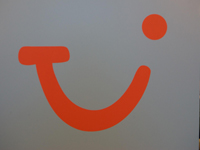 Travel and leisure are probably one of the hardest-hit industries by the COVID-19 crisis. In light of this, TUI AG announced its decision to suspend the vast majority of all travel operations until further notice, including the package travel, cruises, and hotel operations to contribute to global government efforts to mitigate the effects of the spread of COVID-19 in mid-March.
Travel and leisure are probably one of the hardest-hit industries by the COVID-19 crisis. In light of this, TUI AG announced its decision to suspend the vast majority of all travel operations until further notice, including the package travel, cruises, and hotel operations to contribute to global government efforts to mitigate the effects of the spread of COVID-19 in mid-March.
But was there an alternative to this at all? Probably not, which is why the company took substantial cost measures to mitigate the earnings effects and decided to apply for state aid guarantees to support the business until normal operations are resumed.
Two weeks later TUI received a commitment of the Federal Government for a EUR 1.8 billion KfW loan to increase the existing revolving credit facility of EUR 1.75 billion. Thereby, TUI would have cash and available facilities of EUR 3.1 billion (subject to the approval of the banking consortium). In light of current circumstances, shareholders probably don´t mind the required waiver of dividend payments for the term of the credit line. But will there be a commitment by the Board to repay the credit line asap?
CANCOM SE: Far-reaching Consequences of the COVID-19 Crisis, and a little Correction of the Accounts
Many observers are surprised by the far-reaching consequences of the COVD-19 crisis. A prime example is CANCOM SE, which on March 24th announced that the publication of the annual report 2019 is postponed from March 30th to April 28th, due to the coronavirus measures. According to the announcement, the main reason for the delay in the preparation process was the difficult circumstances regarding availability and reconciliations during the preparation of the annual financial statements due to the spread of the coronavirus.
Wow, under these circumstances, the further reason mentioned by the way hardly matters. The initial audit by the new auditor KPMG resulted in reclassifications in the revenue recognition with the so-called principal-versus-agent classification. IFRS uses different criteria to assess whether the selling company (i.e. CANCOM) may show revenue in the full amount of the actual invoice to the customer (principal), or whether the company is classified as an agent and may show a reduced value as revenue (agent, so-called net-presentation9. While CANCOM previously showed revenue as the principal in the amount invoiced, a change in the assessment of agent status has been made in the 2019 annual financial statements resulting in a reduced revenue figure.
Consequently, CANCOM Group´s consolidated revenue for the year 2019 is expected to be EUR 1.55 billion (published preliminary figure: EUR 1.64 billion), while the figure for the year 2018 will be reduced to EUR 1.31 billion (EUR 1.38 billion according to last years´ annual report). The reduction in revenue will result in a lower EBITDA.
Qiagen N.V.: Acquisition at a COVID-19 Premium?
A strategy used to be a long-term affair in the past. Not anymore, it seems. A few months ago, Qiagen concluded a strategic alternatives review and decided to focus on a stand-alone business strategy. At that time, speculation about Thermo Fisher as a potential buyer of Qiagen was already underway. But this potential buyer probably did not match the corporate strategy. But that was in December and now we are in March.
On March 3rd, 2020, Thermo Fisher Scientific Inc. and QIAGEN N.V. informed that their respective Boards unanimously approved Thermo Fisher´s proposal to acquire QIAGEN at EUR 39 per share in cash. This price represents a premium of approximately 23% to the closing price of QIAGEN´s shares on March 2, the last trading day prior to the announcement of the transaction. Thermo Fisher will commence a tender offer to acquire all of the ordinary shares of QIAGEN. The transaction values Qiagen at approximately USD 11.5 billion, which includes the assumption of approximately USD 1.4 billion of net debt.
What has changed since December? Let´s take a look at what strategic benefits the CEO Thierry of QIAGEN, Thierry Bernard, identified for this transaction: “This strategic step with Thermo Fisher will enable us to enter a promising new era and will give our employees the opportunity to have an even greater impact. The combination is designed to deliver significant cash value to our shareholders, while enabling us to accelerate the expansion of our solutions to provide customers worldwide with breakthroughs that advance our knowledge about the science of life and improve health outcomes.”
Presumably, none of that was foreseeable in December? Or is it possible that there was no particular strategy for the operating business at all for a possible takeover situation? In case, perhaps the positive consequences of the COVID-19 crisis for the operative business of QIAGEN `has given the decisive impetus? Further information can be found at http://www.qiagen.com.
thyssenkrupp: Sale of Elevator Business generates proceeds of EUR 17.2 billion
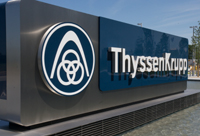 Thyssenkrupp sold its Elevator Technology business to a syndicate led by Advent, Cinven and RAG foundation. Closing of the transaction is expected by the end of the fiscal year, i.e. June 30th, 2020. The purchase price is EUR 17.2 billion. However, thyssenkrupp will reinvest EUR 1.25 billion in the elevator business, leaving a net amount after the deduction of the reinvestment of EUR 15.95 billion.
Thyssenkrupp sold its Elevator Technology business to a syndicate led by Advent, Cinven and RAG foundation. Closing of the transaction is expected by the end of the fiscal year, i.e. June 30th, 2020. The purchase price is EUR 17.2 billion. However, thyssenkrupp will reinvest EUR 1.25 billion in the elevator business, leaving a net amount after the deduction of the reinvestment of EUR 15.95 billion.
The ad hoc statement regarding this transaction contains several elements that create confidence, but should not be expected in such a message. For example, it stated that the purchase agreement has been signed. Fine, that´s nice to know. But how else should the sale have been done, if not by way of a signed contract? But the company was well advised to add these soothing elements, as it helped to calm down market speculations following the news release. The sale is subject to merger control approvals, but thyssenkrupp does not expect the authorities to have any reservations. This confidence is probably based on the selection process for the bidder, since the sale to private equity helps to limit the antitrust reviews to a minimum. In all, the transaction seems to be structured so that it can be implemented quickly.
Assuming closing of the transaction as planned, here comes the most urgent question: What does thyssenkrupp (market cap: EUR 6 billion) plan to do with the net cash inflow of EUR 15.95 billion? Well, thyssenkrupp has a plan. According to the release, the funds will remain within the company and shall be used to reduce debt and to lower structural costs. In particular, they shall serve to partially fund pension obligations. Consequently, annual cash outflow for interest and pension payments are expected to be significantly lowered. Additional amounts shall be used to develop the remaining business and the portfolio to achieve a positive free cash flow in two years.
OSRAM Licht AG / ams AG: No Reason to question the Acquisition Financing
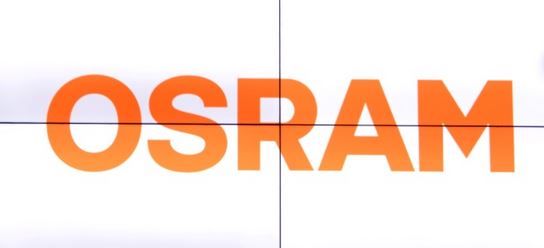 Investors in OSRAM can take a deep breath: No reason to worry about the financing of the takeover attempt. But perhaps the banks involved in this transaction now have a strong interest in the wellbeing of ams also in the long term.
Investors in OSRAM can take a deep breath: No reason to worry about the financing of the takeover attempt. But perhaps the banks involved in this transaction now have a strong interest in the wellbeing of ams also in the long term.
This story started already on January 24th, 2020, when the extraordinary meeting of shareholders of ams approved a rights issue of up to 1.649 million. The proceeds of this issue should be used to repay a portion of the EUR 4.4 billion acquisition bridge facility for the public offer for OSRAM.
The preparations for the rights issue proceeded as planned. On February 11th, 2020, ams successfully placed its entire treasure stock of 3.350.688 shares at a price of CHF 44.25 per share with institutional investors. On the same day, the Management Board of ams decided on the terms of the right issue. In the capital increase, 189,869,454 new shares were offered by way of a discounted rights offering at an offer price of CHF 9.20 per share. For each existing ams share, shareholders received one subscription right. Four rights entitled to purchase nine new shares at the offer price during the subscription period, which ended on March 30th, 2020.
On March 19th, 2020, ams informed the market about the outlook for the public offer and the status of the capital increase. The company expects that the public offer for OSRM will be closed in the second quarter of this year. Also, the capital was proceeding on the terms set out in the prospectus published on March 13, 202, the statement confirmed. Accordingly, the only remaining closing condition relates to the receipt of the required regulatory approvals. This was good news to the OSRAM shareholders, but not so much for the banks, since the rights issue was fully underwritten by a syndicate consisting of the same banks that had also underwritten the fully committed acquisition bridge facility of up to EUR 4.4 billion.
With the completion of the rights exercise period on March 30, 2020, subscription rights for 117,451,512 new shares were exercised, corresponding to 62% of the 189,869,454 offered shares. 15,023,697 of the remaining 72,417,942 shares could be placed with investors at a price of CHF 9.20 in a second step. Accordingly, a total of 132,475,209 shares have been taken up by investors, corresponding to approx. 70% of the 189,869,454 shares offered in the rights issue. The remaining 57,394,245 shares no sit on the books of the syndicate banks according to their underwriting quota.















